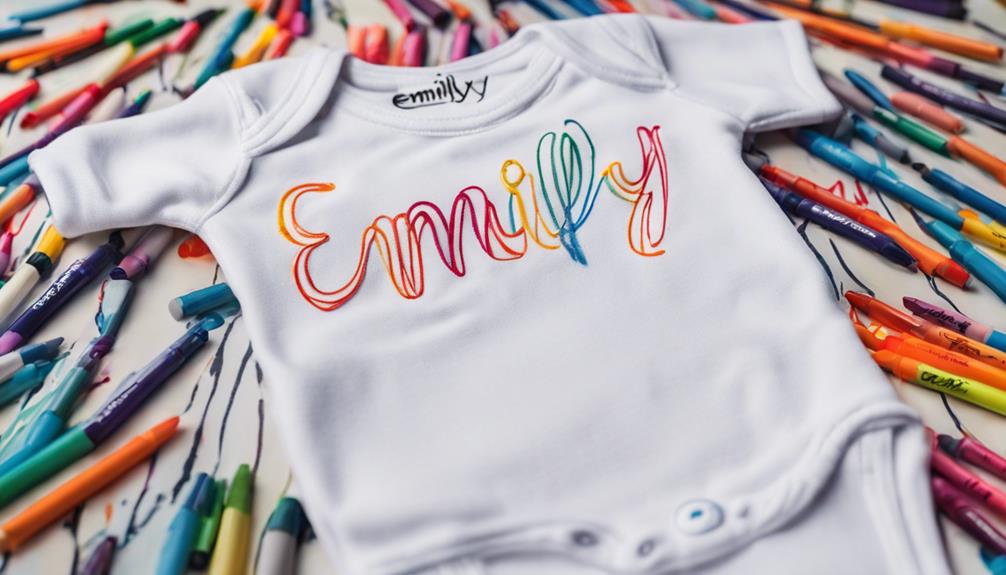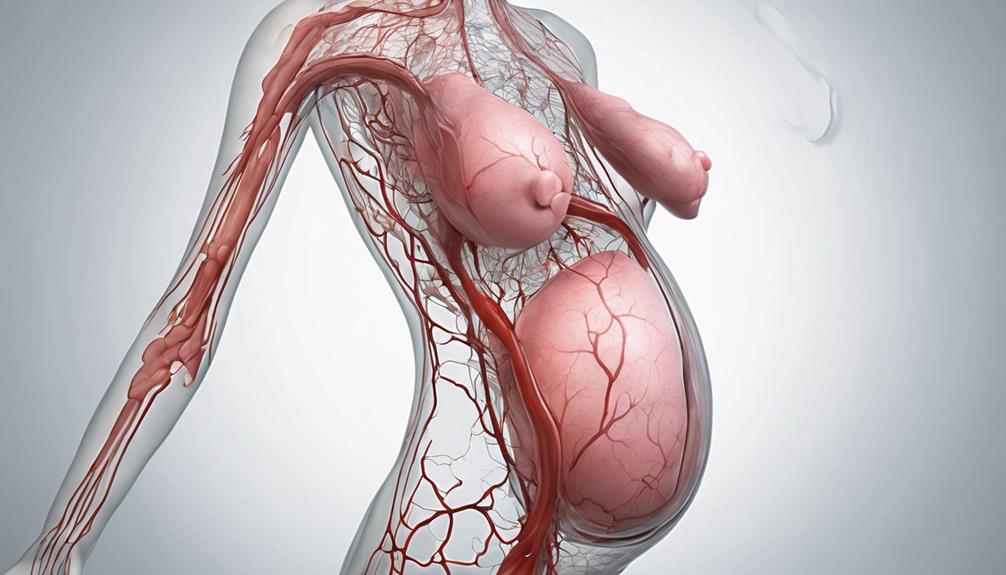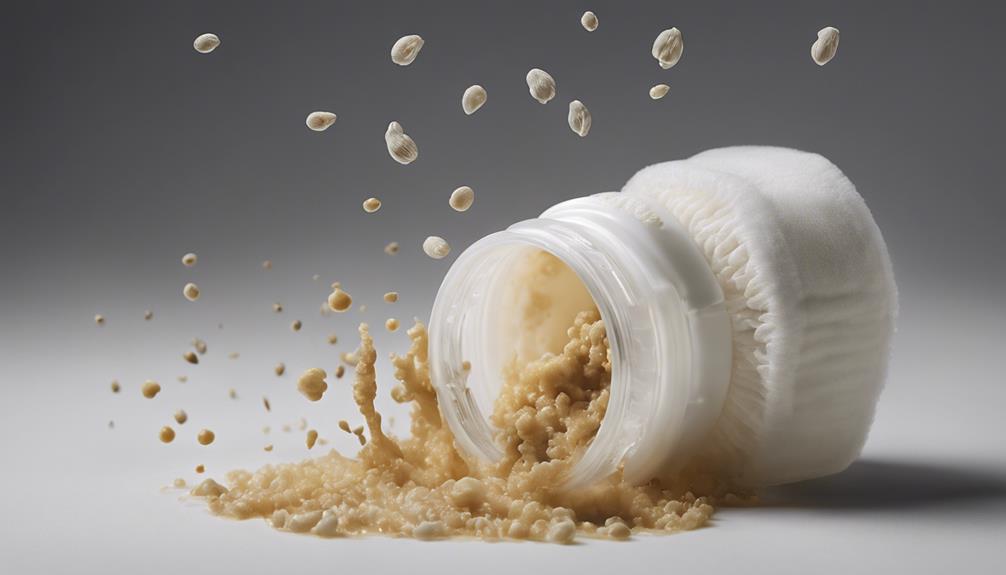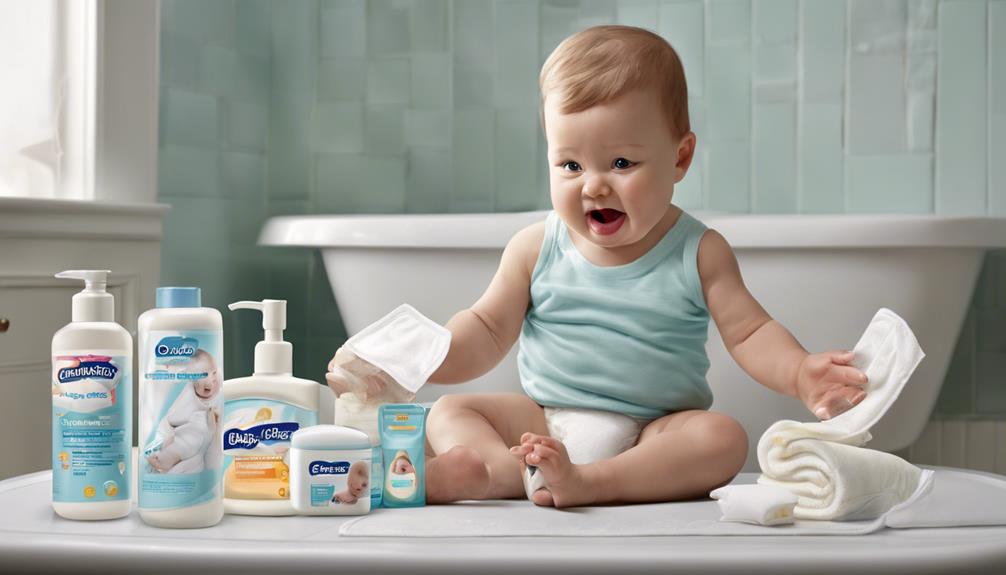Personalizing baby clothing with a unique touch doesn’t have to be difficult; in reality, the easiest methods often result in remarkably unique results. It’s surprising how simple it can be to design personalized items that truly stand out from the crowd.
From selecting the right materials to adding those final intricate details, each step contributes to a heartfelt creation that will surely capture your attention.
So, are you ready to start on this creative journey and witness the joy of seeing your baby wear something truly one-of-a-kind?
Key Takeaways
- Softness and comfort are crucial for baby onesies, while high-quality vinyl ensures lasting designs.
- Crochet delicate names with yarn, secure them neatly on clothes for a personalized touch.
- Embroider initials for elevated style, creating meaningful and memorable baby garments.
- Care for personalized baby clothes by washing inside-out in cold water and avoiding harsh chemicals.
Choosing the Right Materials
When selecting materials for customizing baby clothes, prioritize the softness and comfort of the baby onesie as the foundation for your creative design. The personalized baby name will look even more adorable on a cozy and gentle fabric.
Once you have the perfect baby clothing piece in hand, it's time to guarantee the heat transfer vinyl. Opt for high-quality vinyl to make sure your design stays vibrant wash after wash. This durable material will make your creation last longer, providing a lasting memory for your little one.
To bring your design to life, choose cute shapes cut files that complement the personalized baby name. Utilize a cutting machine like Silhouette Cameo for precise and intricate cuts, adding that extra touch of finesse to your creation.
When it comes to taking into account the heat transfer vinyl, a regular iron, heat press, or easy press can all do the job effectively. Be certain you follow the instructions carefully to secure the vinyl onto the baby onesie accurately. Your attention to detail and choice of materials will result in a custom baby outfit that's both stylish and comfortable for your little bundle of joy.
Designing Your Baby's Name
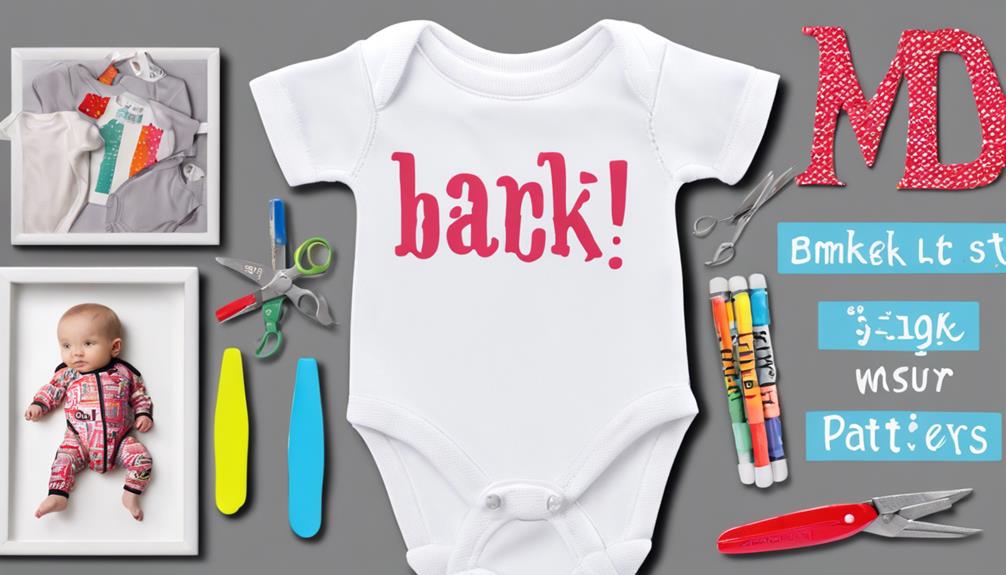
Embark on the creative journey of crafting your baby's name by expertly crocheting a delicate chain stitch using a light to medium weight yarn. Lay out the crocheted name on the baby outfit before sewing to guarantee perfect placement. Utilize a barrier between layers of the outfit while sewing the name on to prevent stitching through to the back. Secure the crocheted name using matching or clear sewing thread, ensuring a seamless finish. For added flair, add dots for 'i' and crosses for 't' by creating small chains and securely knotting loose ends. This personalized baby clothes project is not just a baby shower gift; it's a labor of love. Below is an emotional guide to help you infuse your baby's name into their outfit with style:
| Crochet Name Design | Sewing Placement | Finishing Touch |
|---|---|---|
| Chain Stitch | Perfect Alignment | Polished Detail |
| Light to Medium Yarn | Barrier Layer | Secure Knots |
| Delicate and Personal | Prevent Stitching | Matching Thread |
| Creative Expression | Seamless Finish | Attention to Detail |
Adding Personalized Touches
Embroidering your baby's initials onto their clothing elevates their style and adds a personal touch that's both unique and meaningful.
When you make the choice to add personalized touches to your Custom Baby's wardrobe, you're creating more than just clothing; you're crafting memories.
Imagine the joy of dressing your little one in a onesie with their initials delicately stitched on the chest, or a tiny dress with their name elegantly embroidered on the hem.
These details not only make for wonderful First Birthday outfits but also thoughtful baby gifts for others welcoming a new baby girl into the world.
Applying Name to Baby Clothes
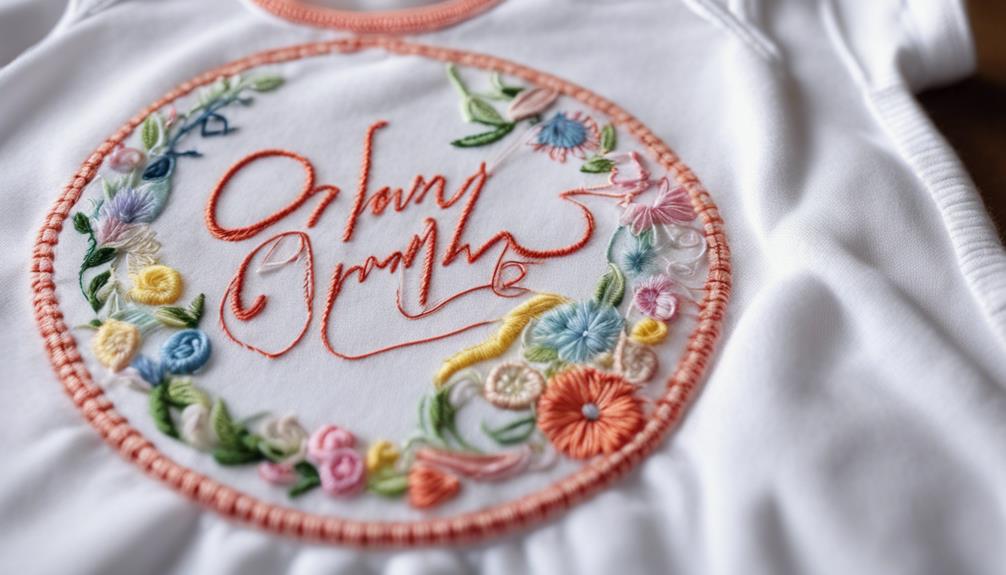
To personalize your baby's clothing with their name, consider using a crochet hook and yarn to craft a unique design. Start by sewing the crocheted name onto the clothing using matching or clear sewing thread. It's essential to secure the name without sewing through to the back of the fabric for a professional look. To add a personalized touch, create small chains to form dots for 'i' and crosses for 't'. Make sure to knot and hide all loose ends securely for a neat finish.
| Step | Description |
|---|---|
| Crochet the Name | Use a crochet hook and yarn to create the baby's name in a unique design. |
| Sew the Name | Securely sew the crocheted name onto the clothing using matching thread. |
| Add Personal Touch | Create small chains for dots and crosses to personalize the name further. |
Finishing Touches and Care Instructions
For a polished and lasting touch to your custom baby clothes, pay attention to the finishing details and care instructions.
When it comes to maintaining the quality of your personalized baby clothes, follow these essential tips:
- Assure Inside Out: To assure longevity, always assure the baby clothes inside out before washing.
- Cold Water Wash: Wash the personalized baby clothes in cold water to prevent shrinking.
- Avoid Harsh Chemicals: Steer clear of bleach or harsh detergents that may damage the custom design.
- Gentle Drying: Tumble dry on low heat or air dry to maintain the quality of the name embellishment.
Frequently Asked Questions
How Do You Print on a Baby Onesie?
To print on a baby onesie, you'll need to create a design, cut it out using a machine, and press it onto the fabric. Remember to mirror the image for the right orientation. Care for it correctly to keep the design intact.
How Do You Hand Embroider Baby Clothes?
To hand embroider baby clothes, select a design, secure the fabric in an embroidery hoop, choose your thread colors, and start stitching using basic embroidery stitches. Enjoy the process, as each stitch adds love to your creation.
Can You Embroider a Onesie?
Yes, you can embroider a onesie! Whether by hand or with an embroidery machine, adding personalized touches to baby clothes like onesies is a lovely way to create unique gifts for new parents or special occasions.
How to Make Things Out of Baby Clothes?
To make things out of baby clothes, gather sentimental pieces. Upcycle old onesies into memory blankets, cute accessories, or soft toys. Create unique items like quilts, stuffed animals, or decor. Transform outfits with love!
Conclusion
Congratulations, you've successfully created custom baby clothes with a personalized name! Now your little one can rock a one-of-a-kind outfit that showcases their unique identity.
Remember, the key to making it special is in the details, so don't be afraid to get creative with colors and embellishments.
Share your adorable creations on social media and watch the likes pour in – you're officially a baby fashion designer extraordinaire!
